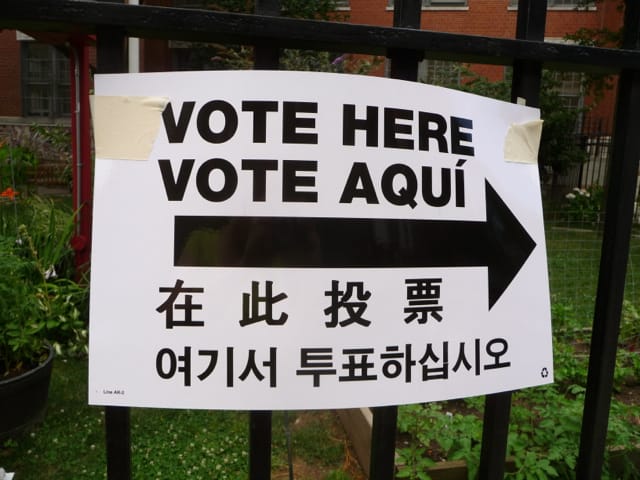Elected Officials Push For Russian And French Creole Interpreters At Polling Sites


Local elected officials have rallied around efforts to add Russian and French Creole interpreters and translations at polling stations.
Following the presidential primary debacle, in which more than 125,000 Brooklyn Democrats were dropped from voter rolls, Mayor Bill de Blasio has offered the Board of Elections nearly $20 million to help clean up its act. However, a group of Brooklyn politicians, including Assemblymembers William Colton, Pamela Harris, Rodneyse Bichotte, and Council Members Mathieu Eugene, David Greenfield and Mark Treyger say some of that money should go towards expanding translation services at ballot boxes.
“Our city’s population of Russian speakers with limited English proficiency exceeds other language groups who are provided interpreters at polling sites, such as speakers of Korean or Bengali,” said Treyger, who represents a district with large population of Russian speakers. “Failing to provide interpreters at these polling sites threatens to disenfranchise a significant amount of voters in a city where voter turnout is already dismal.”
The Board of Elections is already required under federal law to post signs, provides translated voting materials and interpreter services for Chinese, Korean, Spanish and Bengali speaking voters. However, that service does not extend to Russian and French Creole speakers, officials say.
About 120,000 Russian speakers and 49,000 French Creole speakers have limited English proficiency — compared to 47,000 Korean speakers and 39,000 Bengali speakers, according to a press release from Treyger’s office.
Colton has already introduced a bill that would require interpreter services for Russian-speaking voters. Bichotte also introduced legislation this week to mandate voting materials be translated into Haitian Creole and interpreters be placed at polling sites in districts where Haitians make up at least five percent of the population.
Eugene has proposed the Fair Language Voting Act, requiring voting guides be published in the top seven languages in the city, in addition to English and Spanish.
Harris said the problems in the last election highlighted the need to move aggressively to protect the rights of all voters.
“I commend the mayor’s efforts in directing $20 million for vital reforms to the city’s Board of Elections. However, we urge the mayor to include provisions that provide Russian and French Creole interpreters at polling sites and make translation services a top priority,” she said in the press release. “We’ve raised our voices before, and we’ll continue fighting until the diverse voices that make up our Brooklyn neighborhoods are not left out of the voting process.”



